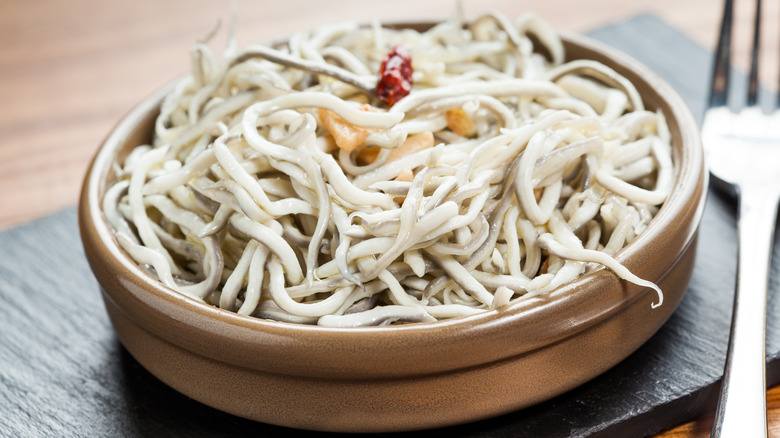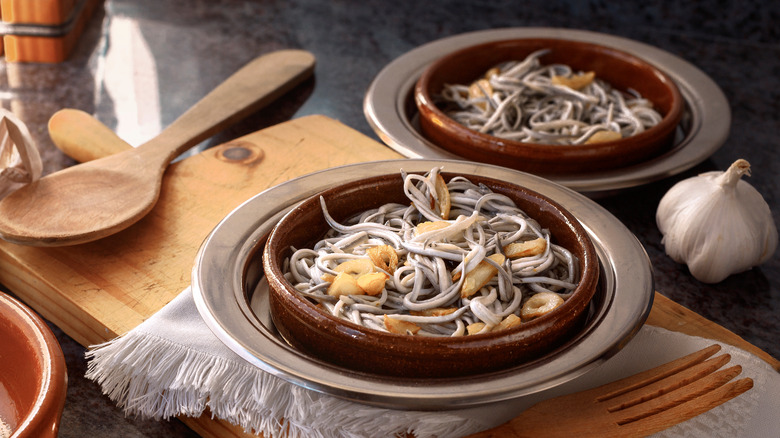The Real Reason Baby Eels Are So Expensive
While many nod sagely at the absurd prices some whiskey, meats, and cheeses go for, fewer seem to realize how lucrative snagging baby eels is. First We Feast lists the going price for baby eels in the United States as $2,000 per pound. Similarly, the BBC reports that in Europe, the going price can be 1,000 euros per kilo, yet first batches can go as high as 5,500 euros for 1.25 kilos. In American terms, that's just over $1,000 for about 2 pounds and almost $6,500 for 2.75 pounds. Considering these are baby eels, they have more value in their weight than gold several times over.
The reason for such a price tag, the BBC explains, is due to the right combination of overfishing and ever-increasing faddishness. Bangor Daily News adds that other ecological factors have played a part as well. The earthquake and tsunami that struck Japan in 2011 greatly damaged the domestic eel fisheries, causing the Japanese to import eels from the United States. Similarly, when the EU banned exporting glass eels, hungry buyers turned to Maine. So, a lot of their value has been inflated by human-made and natural scarcities.
Baby eels are in demand
It's easy to wrap your head around foods or products made expensive by demand. It's harder to wrap your head around why the demand persists to the point where infant seafood becomes the focus of the international smuggling and counter smuggling operations written about in National Geographic. That must be some very tasty fish.
Except, many don't seem to think so. "I wouldn't pay that money for them. They have no taste, no color, nothing, not even smell. A lettuce has more aroma," Arima's head chef Rodrigo García Fonseca told the BBC. The Spruce Eat agrees, deflating the question of how Spain's most expensive dish tastes by stating "not much." There's no real flavor, and the texture seemed to them like crunchy spaghetti.
The relative lack of appeal is reflected in the fact that baby eels, which are called angulas in Spanish, were food for the lower classes until famous restaurants began to cook with them. Then, they became the objects of snobbery. So, the reason why people would shell out 80 euros for an appetizer that includes an ingredient worth thousands of euros per pound is to touch on that snobbish feeling and indulge in conspicuous consumption.

